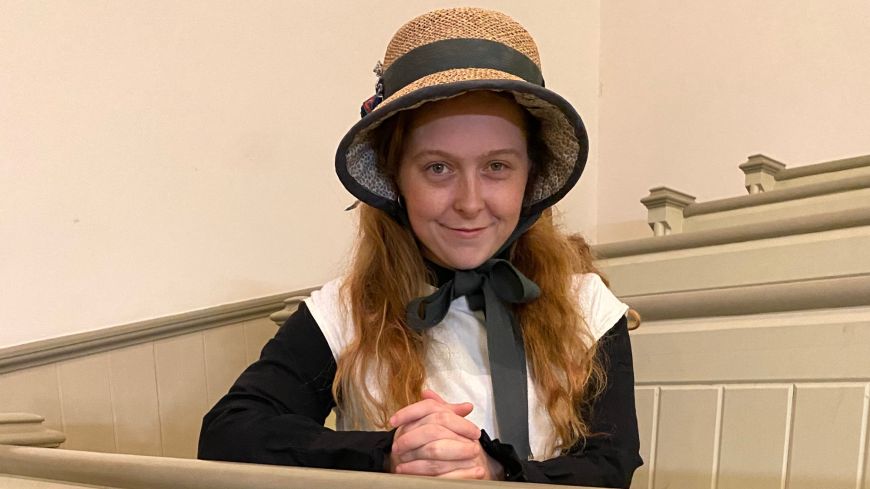
Citadel Arts Group were surprised to discover a connection between Lily Gladstone, star of Scorsese's movie Killers of the Flower Moon and one of the main characters in their forthcoming show, The Ghosts of North Leith.
Lily Gladstone comes from Montana, of Blackfeet Indian stock. But on her mother's side she is descended from the great-great grandfather of a first cousin of the 19th century UK Prime Minister William Ewart Gladstone.
And Gladstone's grandmother is Nellie Gladstones (the family later dropped the final 's') who features in Citadel Arts Group's The Ghosts of North Leith.
Nellie was a feisty businesswoman who, in Hilary Spiers' section of the play, reprimands her son John for using slave labour on his plantations. The fruits of this labour fetch up in Leith.
Hilary Spiers writes: “The Sugar Boycott was a way for middle class women to show their abhorrence of the slave trade by refusing to buy slave-produced sugar. Little is known of Nellie's life which allowed me to give free rein to my imagination. My play portrays her as something of a radical and an early feminist at odds with her family who derive much of their wealth from slavery.”
Compensating the slave-owners
When slavery was abolished in 1833, Nellie's son John Gladstone received the largest payment from the Slave Compensation Commission amounting to over £10m in modern currency. This money likely paid for the fine family gravestone in Coburg Street cemetery.
Slavery is a central issue in The Ghosts of North Leith. The play is based on the stories behind seven of the graves in Coburg Street Burial Ground. One tantalising stone commemorates a Jacob Stoney who died in Leith in 1820 but was born in Jamaica on the family plantation. His fine stone was raised by his sister Mary who was still living in Jamaica. Citadel's writers have woven a story around these bare facts using detailed historical research and some inspired guesswork.
Some are the graves are of well-known characters like Lady Anne Mackintosh who raised troops in the Jacobite Rebellion of 1756. Having enjoyed the Outlander books, playwright Rhona McAdam was attracted to this real-life Jacobite heroine. 'I wondered how Lady Anne ended up in North Leith Burial Ground instead of the family estate in the Highlands.' It appears Leith was a hotbed of Jacobite sympathy.
The figure who links all the stories is Robert Nicoll. Hailed as the second Robert Burns, Nicoll became a radical activist and newspaperman until his early death in 1837, aged only 33. Nicoll is the conscience of the play, pointing out the hypocrisies and double think of the other characters, all stuck in the limbo of North Leith, regretting their unfulfilled lives.
The cast is led by Mark Kydd, a Citadel regular.
He writes: 'As an adopted Leither, I've always been fascinated by its concealed history... vintage maps showing different street names and open fields in what are now built-up areas. Citadel has a fine tradition of examining Leith's past through its work, but here the writers have literally gone underground, exploring the lives of people buried in Coburg Street Cemetery though a combination of painstaking research and imaginative speculation.
One character in the play wryly observes: "They said the deid are quite forgotten after three generations". We hope that this production goes some way towards redressing the balance by helping to celebrate these otherwise forgotten lives.
The script was given a trial performed reading at Leith Festival in June. Director Liz Hare writes: 'Thanks to the enthusiastic feedback of the Leith people and their supportive comments, we have developed and improved the script for three evening performances. Now we exploit light and darkness to create a truly disturbing atmosphere for our North Leith ghosts.”
Ghosts of North Leith will be shown at North Leith Parish Church , soon due to be released for sale by the Church of Scotland.
Show times
14 and 16 November, 7.30pm
Tickets
£10/£9 from [email protected] / 07770 623 924
Photo: Chelsea Grace (Matilda Molesworth, the girl at the heart of the Trinity poltergeist scandal).

